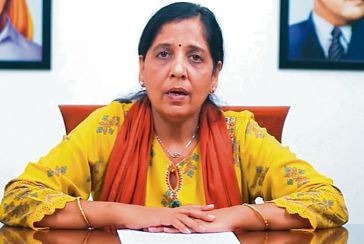
Swati Rai
The difference between listening and hearing is as old as the hills. For the uninitiated, hearing is the physical process such as the involuntary hearing of the noise around us. Listening however, is the mental process as we absorb the speaker’s message.
According to research, communicating with others involves around 45 per cent of the time spent on listening. Therefore, it is important to pay attention to this aspect in the communicative process. Making it a two-way process will also save your time and help you expend energy more judiciously.
Follow these handy hints to listen better and perform the best in your organisation.
Pre-emptive listening?
Listening attentively instead of thinking what our response will be, is a must. Avoid getting distracted by the quirks, if any, and mannerisms of the speaker to listen carefully. This makes us lose track of things said earlier.
Also, sometimes our attention gets diverted towards what is going on, around us. These distractions can make the communicative process longer, time consuming and sometimes exasperating.
Beat the habit of interrupting somebody before he/she finishes a sentence. We think we know what the person is going to say and therefore try to finish off the conversation earlier.
We also engage in personality listening, which is when, based on the speaker’s attitude, we decide whether we want to listen to the person or not. The best is to avoid judging what a speaker is going to say before they open their mouth.
Pitfalls of linear communication
When we are being bombarded with information from all sides, and corners, we can clearly say that there is an information overload. We have got so used to it that we tune out most information and even a complete conversation inadvertently. Try not to do this.
Try to maintain eye contact when interacting with others to show interest. This will ease the paralinguistic communication that you could have with the speaker, especially, when non-verbal cues tell a different story from the vocal and verbal one.
Focus and hang on to each word of the speaker. Stop multi-tasking, moving about, twiddling your thumbs, fidgeting, walking or moving about in circles when the speaker is speaking, this will leave no room for misunderstanding therefore, strengthening relationship and aiding a clearer understanding.
Learning to paraphrase and the ability to tell what the speaker intended to say in your own words, will help concretise what you have heard and also make you an active part of the communicative process. And a re-run of the entire conversation is not possible due to the lack of time.
Involved participant
Actively engage in listening and expressing that you are listening. Using gestures such as smiling, moving your head in a nod, smiling will also help convey an engagement in the conversation. Use phrases such as, “I know, right…”, “I see what you mean..”, “Ahh...ha”.
Without repeating what you asked earlier, or even forcing the speaker to do so, seek answers from the speaker to better understand the other person’s perspective. This will convey your interest in the topic and the speech. Using questions like “Do I get this correctly?” “Is this what you mean or are trying to say?” would help you check your understanding of the speech and convey to the speaker that you are ‘all ears.’Keep an eye open for non-verbal clues from the speaker’s gestures and expressions on the face. Read the fine print of the speech but don’t make overarching deductions or worse still, simplified reductions of the argument or a statement.
Read between the lines but don’t judge or jump to conclusions. Nothing stabs effective communication quicker than pre-judged behaviours, assumptions and thoughts.
Taking a deep breath, processing the words spoken and repeating what the speaker said, are all part of a sound communication system. Merely speaking and speaking well can also not ensure a job well done, if people aren’t listening to you well. Ear training in this sense is crucial to a truly two-way effective communication.


























